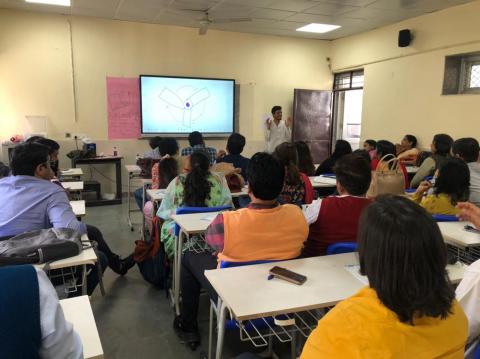
These children do not deserve
This is the time of the year when teachers evaluate students' answer sheets, and one phrase that most teachers engage with is "these children do not deserve it." While checking the answer sheets, teachers have an obligation to promote most of the students to the next grade, which many teachers hesitate to do, particularly when they find that the students have not written appropriate answers.
At the surface level, this concern cannot be ruled out as invalid. Teachers often argue that these children should be sent out of the school so that a standard is set for the rest of the children. If they do not perform, they can also be failed. When we say that the children need to be failed and sent back from school, we are mainly concerned about the children who are in the school. Children outside of school are not a part of our concern. For policy makers, children both within and outside of the school are important, and here comes the rift where teachers and policy makers are not able to understand each other. I think this is also the result of the long separation of society and the school. When we start seeing school as an independent entity, it has very limited relation with the society it exists in. Otherwise, how can we even imagine that these children do not deserve to be in school?
This situation also shows that most teachers do not engage with the lives of the children at a deeper level. In a recent survey conducted by the Directorate of Education, it was found that more than 50% of children are malnourished, and out of these malnourished children, 50% come under the severe category. It reflects the extreme economic and cultural conditions our children endure, which have a very adverse impact on their health. Of course, this deeply influences their cognitive ability to learn. If we transpose this data to our classroom, I think we do not find more than 25% of students who are facing learning difficulties. Malnourishment is directly related to how children perform in the cognitive as well as the behavioral domain.
The question arises, what can teachers do about malnourishment? It’s the responsibility of the parents. Another interesting phrase we often hear in school is, "the children are with their parents for 18 hours and only for around 6 hours they are in school so the Government needs to focus more on their family and society where they spend most of their time." The effort we make in school has a limited role to play in their learning. The argument seems sound, but it comes from our thinking that the government is a separate entity, and we are not a part of it. The reality is otherwise.
The habitus where our students are situated is very challenging, and when we get a look into it, we wonder that whatever learning that occurs in our classroom is out of sheer will and persistence that our students show. Otherwise, the situations around them are totally demotivating. Most families do not even have space to sit and study for children. Students witness several different kinds of violence. In an environment of instability and insecurity, how our children survive is a great wonder in itself. If we look deeply into the lives of our children, we would not be able to utter the phrase, "these children do not deserve."
- Log in to post comments
